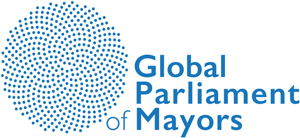Stavanger, September 28, 2017 – Over 45 mayors and deputy mayors representing cities from around the globe, took part in the second Annual Convening of the Global Parliament of Mayors (GPM). Local and tailored solutions to globally-shared challenges was the main theme during the two day deliberations in Stavanger (Norway).
All mayors highlighted the role of leadership and community involvement when planning and implementing global policies on a local level to overcome challenges in society. They shared examples of where strong local leadership can drive solutions in their cities in ways that are faster or more targeted or more progressive than those put forward at a national level. Creating resilient cities, safe cities, inclusive cities and empowered cities framed the discussions.The convening brought forward a will to create common actions to counter negative development in societies mainly through action-oriented co-working and to built-up a selection of issues based upon agreed action points.
The GPM Mayors were advised and supported by experts of distinguished organisations such as Brookings Institution, The Chicago Council on Global Affairs, PricewaterhouseCoopers, ICORN, UNICEF, The Red Cross, Arcadis, UN-Habitat, the European Commission, and network partners such as the US Conference of Mayors and EUROCITIES, as well as the Universities of Georgetown, Brussels and Stavanger.
The Annual Convening also provided the opportunity to announce the initiation of the formal GPM Association as a legal body – giving more formal space and structure to work on common goals – and its new Executive Committee.
The GPM Executive Committee consists of Chair Mayor Patricia de Lille (Cape Town/SA), Vice Chair Mayor Peter Kurz (Mannheim/Germany), Treasurer Mayor Marvin Rees (Bristol/UK), Mayor Leoluca Orlando (Palermo/Italy), Mayor Grace Mary Mugasa (Hoima/Uganda), Mayor Roshaan Wolusmal (Kandahar/Afghanistan), Mayor Christine Sagen Helgø (Stavanger/Norway), Mayor Hanna Gronkiewicz-Waltz (Warsaw/Poland) and Mayor Mitch Landrieu (New Orleans/USA).
“Our job as mayors is to keep our citizens safe. This is especially important when people are exposed to external stress. Climate change, terrorism and fear of societal decline now create tensions in societies across borders. As mayors, we can step forward and make an effort to create stability”, said Mayor Sagen Helgø, member of the GPM Executive Committee and host of the GPM Annual Convening 2017.
GPM Chair de Lille (Cape Town) said: “Individually we have the power to act on the policies of international organisations if we know that it adversely impacts the lives of our residents. By doing this collectively and adding our many voices, we make much stronger inputs into that which determines global governance”.
GPM Vice-Chair Kurz (Mannheim) adds: ”Through direct city-to-city action we can gain the biggest impact. Instead of purely best practice exchange on paper, we can instigate stronger action, as we are used to doing daily in our cities. Alongside our own actions, we recognize the importance of also cooperating strongly with international and experienced institutions, networks and organisations, towards global solutions through these local engagements.”
At the start of the Annual Convening Mayor Leoluca Orlando (Palermo/Italy) received the first Dr. Benjamin Barber Global Cities Award for his outstanding actions to advance citizen rights, through his work with refugees arriving in his city.
The GPM aims to build an active, impactful and structured network of, by and for mayors. It offers mayors a common global voice to international organisations, enhances cooperation, connectivity and solidarity between city leaders and advances global agendas of international organisations by supporting action driven regional and local initiatives and provides services that mobilises such initiatives.

